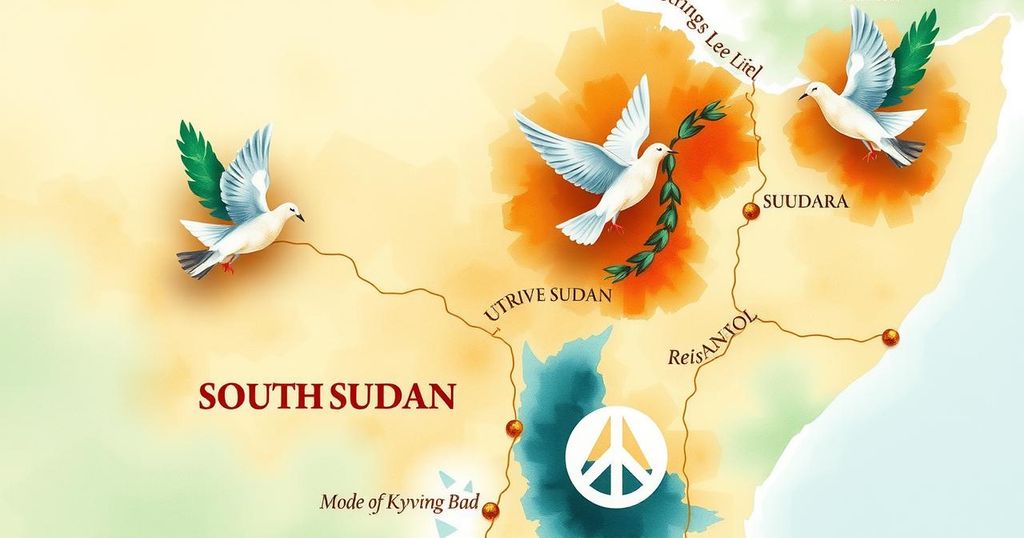Potential Civil War Looms Over South Sudan Amidst Political Turmoil
The ongoing crisis in South Sudan threatens to reignite civil war as a fragile peace agreement is further jeopardized by the arrest of Vice President Riek Machar and the related unrest. Despite international calls for de-escalation and a ceasefire, tensions grow amid accusations of rebellion and foreign military interventions, while economic hardships persist.
South Sudan, the world’s youngest country, faces a potential resurgence of civil war as a peace deal, which previously ended a violent conflict, is at risk of collapsing. This conflict has claimed tens of thousands of lives and left the nation grappling with governance issues, primarily due to deep ethnic divisions.
After gaining independence from Sudan in 2011, South Sudan has struggled to maintain peace, leading to civil wars in 2013 and 2016. In 2018, a fragile ceasefire was established, but recent developments threaten to undermine this agreement, putting the nation in peril once again.
Currently, a coalition government led by President Salva Kiir, which includes his rival Riek Machar as a vice president, governs the country. Tensions escalated following Machar’s arrest, which the SPLM/A-IO, his political party, indicated could effectively end the existing peace agreement. The political climate remains volatile with accusations of military aggression and unrest.
In light of the ongoing disaster, the SPLM/A-IO condemned foreign military interventions and expressed serious concerns regarding the future of peace in South Sudan. A recent clash in Nasir between government forces and a Nuer militia resulted in numerous casualties, exacerbating the fragile peace further.
Officials from the government accused Machar of inciting rebellion and jeopardizing election processes, deeming him a threat to stability. In this increasingly charged atmosphere, the SPLM/A-IO has not responded publicly to these allegations, underscoring the serious tensions at play.
International concerns are mounting. UN representatives have warned that developments like Machar’s arrest signify a movement towards civil war. Western nations have urged the South Sudanese government to reverse such arrests and promote a ceasefire to restore calm among armed factions.
In light of these events, the US embassy has advised its citizens to evacuate from South Sudan due to the deteriorating security situation. Meanwhile, African Union efforts to deploy a delegation for de-escalation indicate regional awareness of the potential crisis.
The economic hardship is dire, with many citizens reported to be living on less than $2.15 per day. Despite its struggles, South Sudan continues to host hundreds of thousands of refugees from nearby conflict zones. The recent assessments paint a bleak picture, revealing a nation teetering on the brink amid multiple compounding crises.
South Sudan is facing the risk of renewed civil unrest as a peace agreement, vital for preventing further violence, hangs in the balance. With escalating tensions, ethnic divisions, and international calls for intervention, the situation demands immediate attention to avert a collapse into chaos. The implications of this unrest not only jeopardize the nation’s stability but also affect the broader region as humanitarian needs surge.
Original Source: www.cnn.com




Post Comment